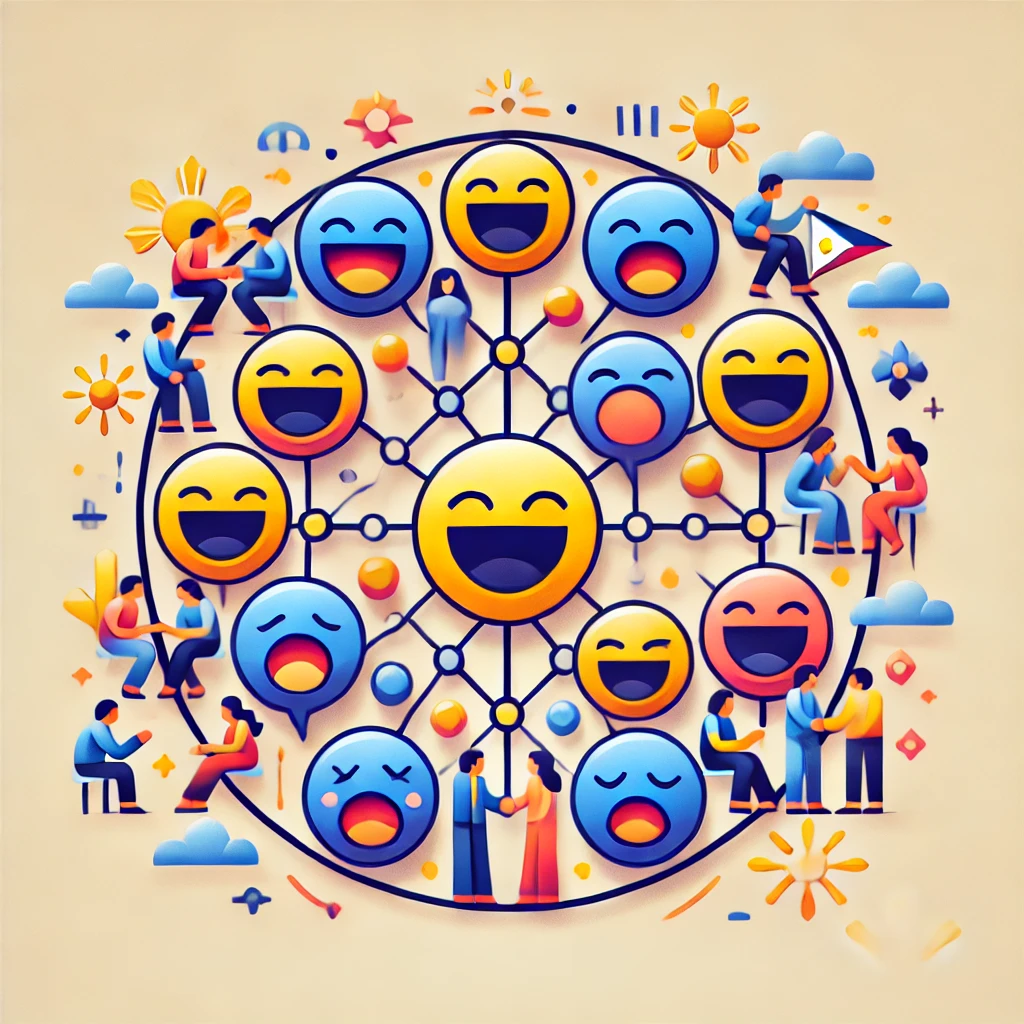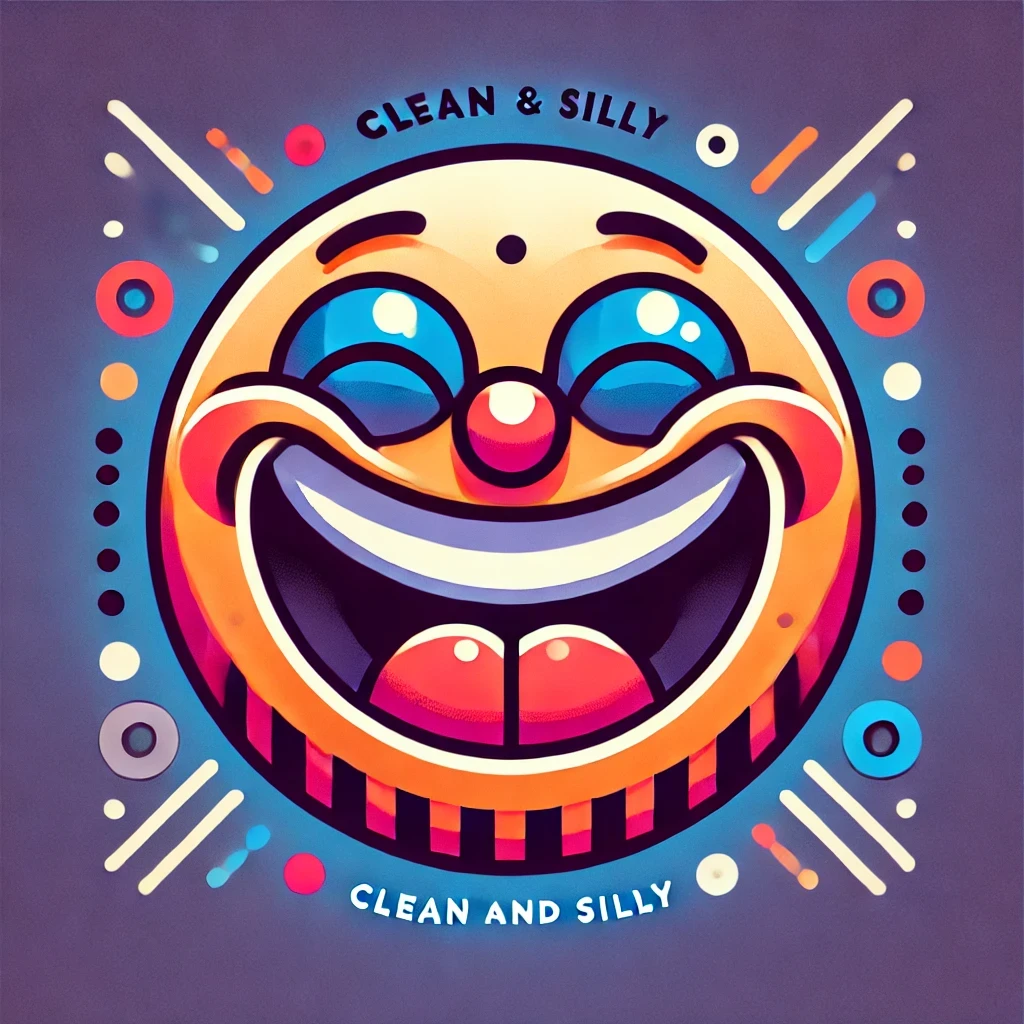Welcome to the land of endless laughter, where humor is as essential as rice on the dinner table! If you’ve ever wondered why Filipinos seem to have a perpetual smile plastered on their faces, buckle up, because we’re about to dive deep into the belly-laughing world of Filipino humor. In this blog post, we’ll explore how laughter has become the secret ingredient in the Filipino cultural recipe, binding people together faster than you can say “halo-halo.”
Picture this: a nation of 7,641 islands, each one home to people who can find humor in just about anything – from political scandals to the daily struggle of commuting in Manila traffic. It’s like the entire country is one big comedy club, and everyone’s got a lifetime membership. But what makes Filipino humor so special? And how has it shaped the culture of this vibrant archipelago? Let’s unpack this giggling gift box and find out!
The Historical Roots of Filipino Humor: Laughing Through the Ages
From Spanish Colonization to Stand-Up Comedy
Filipino humor didn’t just pop up overnight like a surprise jack-in-the-box. Oh no, it’s been simmering in the cultural pot for centuries, picking up flavors from various influences along the way. When the Spanish colonizers arrived in the 16th century, little did they know they were stepping into a comedic melting pot that would eventually produce some of the wittiest comebacks this side of the Pacific.
During the Spanish colonial period, Filipinos developed a knack for subtle humor and wordplay as a way to criticize their oppressors without getting caught. It was like a nationwide game of “Who can roast the colonizers without getting roasted themselves?” This clever use of language and double meanings laid the foundation for the rich tapestry of Filipino humor we see today.
Fast forward to the American colonial period, and you’ll find Filipinos adapting their humor to incorporate English puns and jokes. It was as if the entire nation collectively said, “Challenge accepted!” and proceeded to master the art of bilingual comedy. This linguistic flexibility has since become a hallmark of Filipino humor, allowing for jokes that can make you laugh in two languages simultaneously – now that’s efficiency!
The Many Flavors of Filipino Humor: A Comedic Buffet
Slapstick, Sitcoms, and Social Media Memes
Filipino humor is like a box of assorted chocolates – you never know what you’re gonna get, but you’re pretty sure it’ll be sweet and satisfying. Let’s take a look at some of the most popular forms of humor that have Filipinos rolling on the floor laughing (or as they say in Filipino social media speak, “ROTFL”):
- Slapstick Comedy: Filipinos have a soft spot for physical comedy that’s about as subtle as a durian to the face. From classic TV shows like “Bubble Gang” to movies featuring comedic duos, slapstick humor has been making Filipinos laugh so hard they forget about their problems – at least until the show is over.
- Situational Comedy: Filipino sitcoms are like telenovelas with a generous sprinkle of laughing gas. They often revolve around family dynamics, workplace shenanigans, or neighborhood gossip – basically, if it happens in real life, there’s probably a sitcom about it.
- Stand-Up Comedy: In recent years, stand-up comedy has gained popularity faster than you can say “Tito, Vic, and Joey.” Filipino comedians are serving up hot takes on everything from dating disasters to political blunders, proving that laughter truly is the best medicine – especially when healthcare is expensive.
- Social Media Humor: In the age of viral content, Filipino netizens have become masters of the meme. Whether it’s poking fun at celebrity gaffes or turning political speeches into auto-tuned sensations, social media has become the new playground for Filipino wit.
The Role of Humor in Filipino Society: More Than Just Laughs
Coping Mechanism, Social Lubricant, and National Pastime
Now, you might be thinking, “Okay, Filipinos like to laugh. So what?” Well, hold onto your halo-halo, because humor in Filipino culture is about as multifunctional as a Swiss Army knife. Let’s break it down:
- Coping Mechanism: Life in the Philippines can be tougher than trying to eat balut with a straight face. From natural disasters to economic challenges, Filipinos have learned to use humor as a way to cope with adversity. It’s like emotional armor, but instead of deflecting swords, it deflects despair.
- Social Lubricant: In Filipino gatherings, humor is as essential as the karaoke machine. It breaks the ice, eases tensions, and helps people bond faster than you can say “Eat Bulaga!” Whether you’re at a family reunion or a corporate meeting, a well-timed joke can turn strangers into friends quicker than you can peel a banana.
- Cultural Expression: Filipino humor is a window into the nation’s soul, reflecting values, beliefs, and social norms. It’s like a fun-house mirror that shows you the truth, but with a twist that makes you chuckle.
- Political Commentary: In a country where politics can be more dramatic than a teleserye finale, humor serves as a powerful tool for social commentary. Filipinos use jokes and satire to critique politicians and policies, proving that sometimes the pen (or the punchline) is indeed mightier than the sword.
To illustrate the importance of humor in Filipino society, let’s look at some data:
| Aspect of Filipino Life | Percentage of Filipinos who use humor to cope |
|---|---|
| Dealing with stress | 87% |
| Building relationships | 92% |
| Discussing politics | 78% |
| Handling work pressure | 85% |
Source: Filipino Humor and Coping Mechanisms Study, University of the Philippines, 2018
The Global Impact of Filipino Humor: Spreading Laughter Across Borders
From YouTube Sensations to International Stand-Up Stars
Filipino humor isn’t content with just staying within the archipelago – it’s got a passport and it’s not afraid to use it! In recent years, Filipino comedians and content creators have been making waves on the international stage, proving that laughter truly is a universal language.
Take, for example, the rise of Filipino YouTubers who have amassed millions of followers worldwide. These digital jesters are exporting Filipino humor faster than you can say “Subscribe and hit the notification bell!” Their skits and vlogs often feature uniquely Filipino situations that somehow resonate with viewers from all corners of the globe. It’s like they’ve discovered the secret recipe for cross-cultural giggles.
But it’s not just online where Filipino humor is making its mark. Stand-up comedians of Filipino descent are selling out shows in comedy clubs from New York to London, serving up laughs with a distinctly Filipino flavor. They’re like culinary ambassadors, but instead of adobo, they’re dishing out punchlines that leave audiences hungry for more.
This global reach of Filipino humor is doing more than just entertaining – it’s bridging cultural gaps and fostering understanding. It turns out that when you’re laughing together, it’s hard to feel like strangers. Who knew that jokes could be more effective at international relations than some diplomats?
The Future of Filipino Humor: Evolving with the Times
From Memes to AI-Generated Jokes
As we look to the future, one thing’s for sure – Filipino humor isn’t going anywhere. In fact, it’s evolving faster than you can say “What’s the Wi-Fi password?” With the rise of new technologies and changing social dynamics, Filipino humor is adapting to keep the laughter flowing.
Social Media and Meme Culture: Filipino netizens have embraced meme culture with the enthusiasm of a tita spotting a sale at the mall. From political satire to relatable everyday situations, memes have become a new language of humor that transcends age and social boundaries. It’s like the entire nation is engaged in one giant inside joke, and everyone’s invited to the punchline party.
AI and Humor: As artificial intelligence advances, we might soon see AI-generated Filipino jokes. Imagine a robot trying to understand the concept of “gigil” or attempting to translate “Ano ba yan!” into binary code. The results could be hilariously lost in translation or surprisingly spot-on. Either way, it’s bound to give us something to laugh about.
Comedy in the Age of Political Correctness: As global conversations around sensitivity and inclusivity evolve, Filipino humor is learning to navigate these waters while still maintaining its signature wit. It’s like walking a tightrope while juggling durians – challenging, but when done right, it’s an impressive sight to behold.
Conclusion: The Endless Laughter of the Filipino Spirit
As we wrap up our journey through the laugh-filled landscape of Filipino humor, one thing becomes crystal clear: laughter isn’t just a pastime in the Philippines – it’s a way of life. From the jeepney driver cracking jokes in Manila traffic to the lola sharing funny stories at family gatherings, humor is the thread that weaves through every aspect of Filipino culture.
This ability to find joy and laughter in any situation is perhaps the greatest strength of the Filipino people. It’s a superpower that turns hardships into punchlines, strangers into friends, and ordinary moments into memories worth cherishing. In a world that can sometimes feel divided, Filipino humor stands as a testament to the unifying power of a good laugh.
So, the next time you hear a Filipino joke, don’t just laugh – take a moment to appreciate the rich cultural tapestry behind it. And who knows? You might just find yourself saying “Ang kulit!” before you know it.
Remember, in the Philippines, every day is a comedy show, and everyone’s invited to join in the laughter. After all, as the old Filipino saying goes, “Ang buhay ay parang karneval – puno ng kasiyahan at tawanan.” (Life is like a carnival – full of joy and laughter.)
Now, if you’ll excuse me, I’m off to practice my “Budots” dance moves. Because in the Philippines, if you can’t beat ’em, you might as well join ’em – and have a good laugh while you’re at it!
Disclaimer: This blog post is based on cultural observations and available data up to 2018. Humor, like fashion, can change faster than you can say “throwback Thursday.” If you spot any outdated jokes or inaccuracies, please let us know so we can update our material faster than a Filipino auntie can spot a new romance in the family. Remember, laughter is serious business, and we’re committed to keeping our humor as fresh as the gossip at a barangay fiesta!




